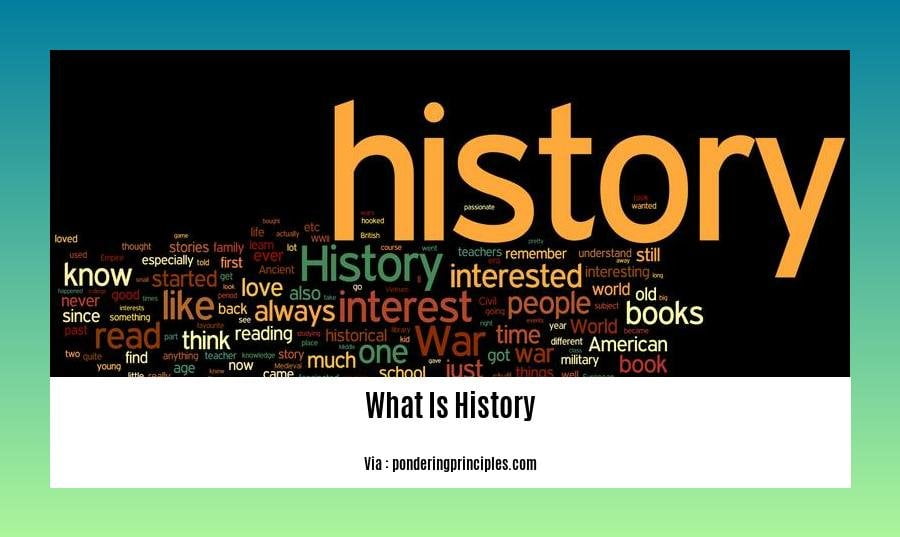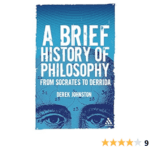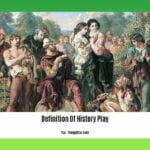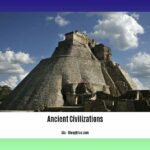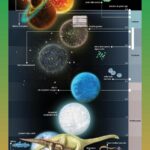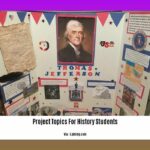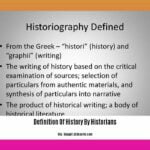In the tapestry of time, history stands as the vibrant thread that connects us to our past. “What is History? Exploring the Past to Understand the Present” delves into the captivating world of historical inquiry, unraveling the significance of past events in shaping our understanding of the human experience. From the rise and fall of civilizations to the impact of individuals on the course of time, history provides a lens through which we can examine the complexities of human society, the interplay between cause and effect, and the enduring legacy of the past.
Key Takeaways:
- History is the study of past events, especially those involving humans.
- It includes the entire series of events related to a specific person, thing, or trend.
- History can be divided into personal, family, and broader historical accounts.
- The term “history” comes from the Greek word for “finding out” or “narrative.”
What is History
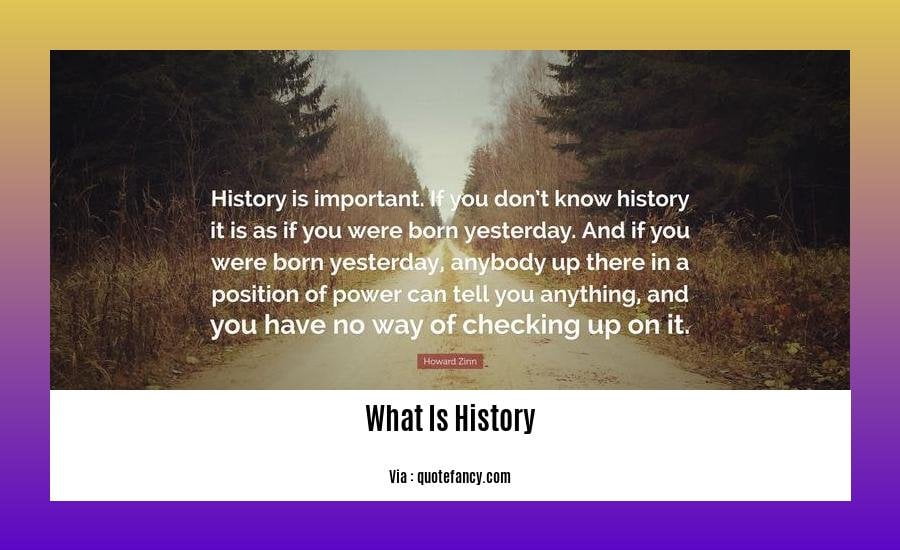
History is the tapestry of the past, woven with the threads of human experience. It is the chronicle of events, the study of bygone eras, and the key to comprehending our present and shaping our future.
What History Encompasses
Scope: History encompasses not just the grand narratives of wars, revolutions, and empires, but also the intimate stories of individuals, families, and communities. It includes the triumphs and tragedies, the successes and failures that have shaped the human journey.
Types:
* Universal History: Sweeping narratives that span entire civilizations or periods.
* National History: Focuses on the development and evolution of specific countries or regions.
* Local History: Explores the stories of particular towns, cities, or neighborhoods.
* Oral History: Preserves and interprets the spoken accounts of past events.
* Social History: Examines the lives and experiences of ordinary people, highlighting social, cultural, and economic factors.
Why History Matters
History serves as a mirror to the past, allowing us to learn from the mistakes and successes of those who came before us. It helps us understand the forces that have shaped our world and provides context for current events. By studying history, we can:
- Gain Perspective: History gives us the perspective we need to make informed decisions, both as individuals and as a society.
- Avoid Repeating Mistakes: When we understand the past, we can identify patterns and avoid repeating the same errors.
- Foster Empathy: Studying history allows us to step into the shoes of others, gaining empathy for different cultures, beliefs, and experiences.
- Appreciate the Present: History helps us appreciate the present by illuminating the struggles, sacrifices, and advancements that have brought us to this point.
History is not just a dusty collection of facts; it is a living, breathing narrative that shapes who we are and where we are going. By embracing the echoes of the past, we can navigate the complexities of the present and build a better future for ourselves and generations to come.
Want to know the meaning of history from an expert’s point of view? Click on the definition of history to get an in-depth explanation.
Understand the significance of history and why it’s not just about memorizing dates and events, but also about interpreting the past to better understand our present.
Discover the incredible importance of studying history and how it can help us make informed decisions, foster empathy, and cultivate a broader perspective on life.
How do past events help us understand the present?
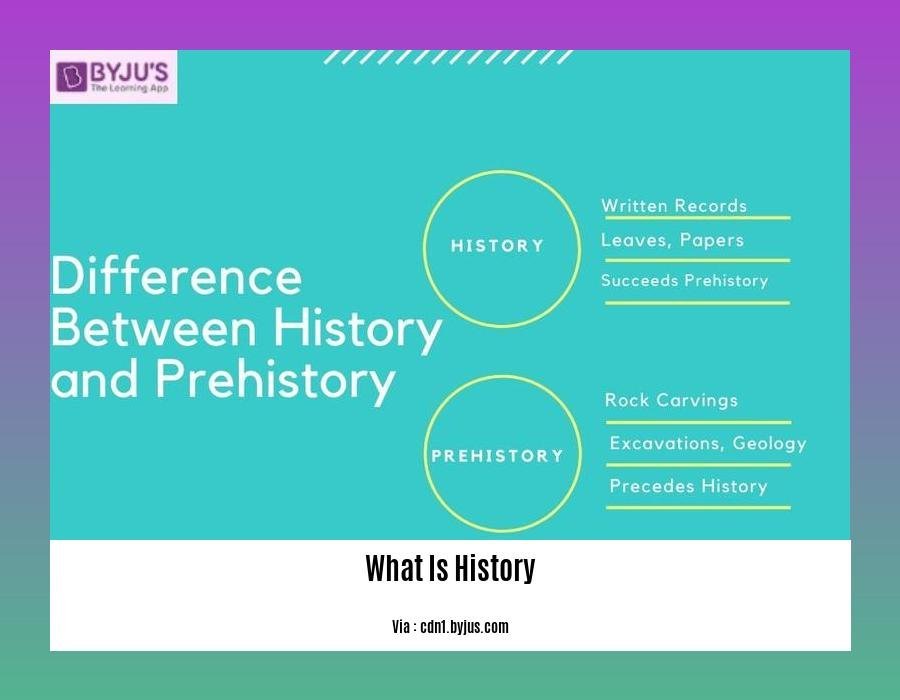
Past events serve as invaluable lenses through which we can decipher the complexities of the present. Studying history empowers us to:
Unveiling Patterns and Trends
History is replete with patterns and trends that shape our present. By examining past occurrences, we can discern recurring dynamics and anticipate potential outcomes. This knowledge empowers us to make informed decisions, steering our societies towards progress and avoiding pitfalls.
Learning from Past Mistakes
History offers a sobering chronicle of our follies. It reminds us that even the most advanced civilizations are susceptible to error. By studying past mistakes, we gain invaluable lessons that safeguard us from repeating them, enabling us to navigate the challenges of the present with greater wisdom and foresight.
Developing Critical Thinking
Engaging with history nurtures critical thinking skills. It challenges us to evaluate sources, weigh evidence, and form independent judgments. By questioning historical narratives, we develop a discerning eye and a deeper understanding of the world around us.
Appreciating Cultural Heritage
History connects us to our roots, providing a sense of belonging and identity. It unveils the traditions, beliefs, and values that have shaped our societies over time. By embracing our historical heritage, we foster a deeper appreciation for the diverse tapestry of human culture.
Key Takeaways:
- History provides a record of past events that shape present societal structures and norms.
- Studying history helps identify patterns and trends in societal development, enabling us to anticipate potential outcomes and make informed decisions.
- History serves as a repository of lessons learned from past mistakes, preventing us from repeating them and fostering progress.
- Engaging with history encourages critical thinking, promoting a deeper understanding of the world.
- History connects us to our past and provides a sense of identity within a larger narrative of human existence.
[Citation: History Disclosure:
Methods
History isn’t just about memorizing dates and events; it’s about understanding the methods historians use to uncover the past. Just like detectives, historians rely on evidence to piece together the story of humanity.
Primary vs. Secondary Sources
Think of primary sources as firsthand accounts, like letters, diaries, or newspapers. They provide a direct glimpse into the past. On the other hand, secondary sources are written later, using information from primary sources. They offer interpretations and analysis, which can be helpful, but it’s important to remember that they’re not as close to the actual events.
Evaluating Sources
Not all sources are created equal. Historians carefully evaluate their sources, considering their author, purpose, and potential biases. For example, a newspaper article written during a war might be biased towards one side of the conflict.
Combining Sources
Once historians have gathered their sources, they need to put the pieces together. They compare different accounts, looking for both similarities and differences. This helps them get a more complete and accurate picture of the past.
Just like a jigsaw puzzle, history is built by fitting the pieces together. By using these methods, historians can bring the past to life, helping us understand who we are and where we came from.
Key Takeaways:
- Historians use methods to research and write histories.
- Primary sources provide firsthand accounts of the past, while secondary sources offer interpretations and analysis.
- Evaluating sources for validity and authority is crucial in historical research.
- By combining sources, historians aim to accurately and reliably reconstruct the past.
Relevant URL Sources:
FAQ
Q1: What is the definition of history, according to historians?
A1: History is the study of past events, particularly in human affairs, providing a record of past occurrences that have shaped current structures and cultural norms.
Q2: Why is history important?
A2: History helps us understand the present, identify patterns in societal development, learn from past mistakes, develop critical thinking skills, and connect to our heritage.
Q3: How do past events help us understand the present?
A3: History provides a record of past events that have influenced present-day situations, enabling us to comprehend current societal structures, traditions, and cultural practices.
Q4: What methods do historians use to study the past?
A4: Historians employ historical methods such as source criticism, synthesis, and historical reasoning to research and write histories, utilizing primary and secondary sources along with material evidence like archaeological findings.
Q5: How do historians evaluate the validity and authority of sources?
A5: Historians critically analyze sources to determine their validity and authority, considering factors such as authorship, context, biases, and corroboration with other sources, aiming for accurate and reliable historical reconstructions.
- China II Review: Delicious Food & Speedy Service - April 17, 2025
- Understand Virginia’s Flag: History & Debate - April 17, 2025
- Explore Long Island’s Map: Unique Regions & Insights - April 17, 2025
